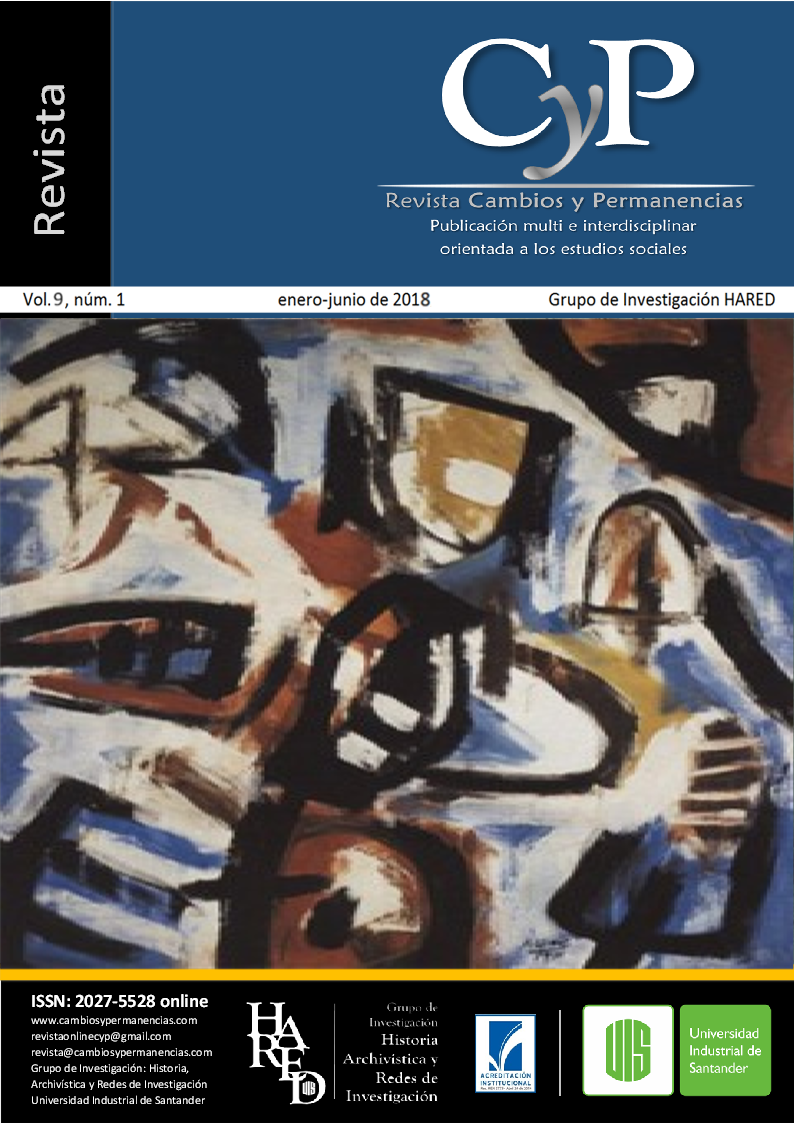Towards the construction of a pedagogy of peace: oral sources and construction of a culture of peace
Published 2018-06-01
Keywords
- Education for the Peace,
- Pedagogy for the Peace,
- History of the Recent Time,
- Social Sciences
How to Cite
Abstract
The education of the social sciences has entered a process where it is extremely important bear in mind elements that before did not exist to the interior of the classroom: the information in excess, the crisis in the methods of education among others, they appear as an impossibility for the learning. The following paper, he tries from the presentation of an experience given in the frame of the pedagogic practice of the basic master emphatically in social sciences of the university Distrital, where the oral fountains were in use as pedagogic tool, to bring the conceptualization of a pedagogy over for the construction of peace from the education of the recent history
Finally one was offered think about the use of the pedagogic tools with oral fountains for the consolidation of one historical thought and the first tracks to be able to consolidate a pedagogy for the construction of peace, where the oral fountains are important elements to tell the statements that one finds they were of the social and scientific accepted knowledge.
Downloads
References
Bojacá, A. (2005). El proyecto de investigación etnográfica en el aula. Marco teórico-operativo. Hallazgos. Revista de Investigación. Bogotá: Universidad Santo Tomás de Aquino.
Entrevista a Edison Almanza, Secretario de Ciudadanía y Convivencia Alcaldía Bogotá. (10 de Noviembre de 2016). Realizada por Jonathan Almanza. Bogotá.
Entrevista a Juan Carlos López. Ayudante de construcción. (10 de Noviembre de 2016). Realizada por Jonathan Almanza. Bogotá.
Fisas. V. (1994). La Cultura de Paz. En Alternativas de Defensa y Cultura de Paz (p. 115 – 122). España: Editorial Fundamentos.
Freire, P. (2005). Pedagogía del oprimido. México: Editorial Siglo XXI.
Herrero, S. (2003). Reseña de "Educación para la paz. Su teoría y su práctica" de Xesús R. Jares. Convergencia. Revista de Ciencias Sociales, pp. 285-298.
IED Simón Bolívar. (2015) Manual de Convivencia. Bogotá.
Jares, Xesús. (1999). Educación para la paz. Su teoría y su práctica. Madrid: Popular.
Ocampo L., Javier. (1997). La enseñanza de la historia. Las nuevas tendencias historiográficas, métodos y técnicas en la didáctica de la historia. Acción pedagógica (15).
UNESCO. (1999). “Declaración y Programa de Acción sobre una Cultura de Paz”. Recuperado de: http: //www.unesco.org/cpp/sp/proyectos/suncofp.pdf, revisado: 22 de Marzo 2016.
Woods, Peter. (1998). La escuela por dentro. La etnografía en la investigación educativa. España: Paidós.


